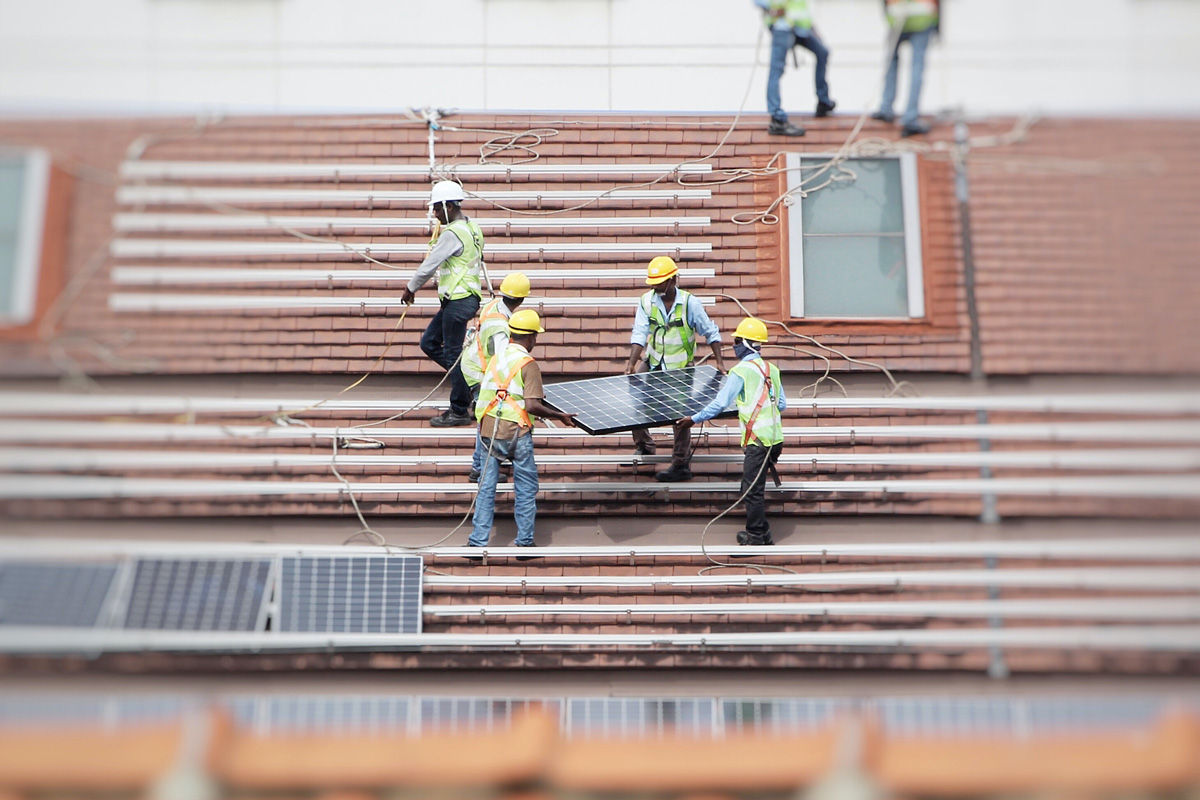

Frequently Asked Questions
This FAQ page will answer all of your questions about solar energy and our company. If you have any other questions or concerns, please do not hesitate to contact us. Our team of experienced professionals is always ready to help.
What is solar energy?
Solar energy is the energy derived from the sun’s radiation. It can be harnessed using solar panels to generate electricity for homes and businesses.
Solar panels contain photovoltaic cells that convert sunlight into direct current (DC) electricity. An inverter then converts the DC electricity into alternating current (AC) electricity, which can be used to power homes and businesses.
Solar energy is a renewable and sustainable energy source that can help reduce carbon emissions and increase energy independence.
What are the benefits of using solar energy?
Solar energy has numerous benefits like:
- Reducing carbon footprint
- Increasing energy independence
- Providing a reliable source of energy
- Increasing property value
- Reducing electricity bills
And many more.
How long do solar panels last?
Most solar panels have a lifespan of 25-30 years, but they can continue to produce electricity beyond this time frame.
Can solar panels work during cloudy or rainy days?
Yes, solar panels can still generate electricity on cloudy or rainy days, although the amount of electricity produced will be reduced compared to sunny days.
How much do solar panels cost?
The cost of solar panels varies depending on factors like:
- Size of the system
- The type of panels used
- The installation costs
However, the cost of solar panels has decreased significantly in recent years, making it more affordable for homeowners and businesses to invest in solar energy.
How many Types of Solar Systems do you install?
Offgrid:
Off-grid solar is a system that utilizes solar panels to generate electricity in a location that is not connected to the traditional power grid. The system typically consists of solar panels, a charge controller, a battery bank, and an inverter..
Ongrid (Grid Tied System):
On-grid, or grid-tied solar systems, are solar power systems that are connected to the traditional power grid. These systems typically consist of solar panels, an inverter, and a metering system.
Hybrid System:
A hybrid solar system is a combination of an off-grid and on-grid solar system, which allows for the best of both worlds. It can operate independently from the grid when necessary, while still having the option to draw power from the grid when required.
